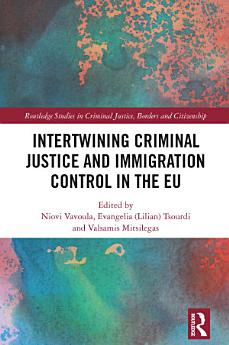Intertwining Criminal Justice and Immigration Control in the EU
Über dieses E-Book
The contributions to this book explore the conceptual and philosophical underpinnings of EU and national policies intertwining criminal and migration law, as well as their practical use (and abuse). They analyse migration control through criminal law from multidisciplinary and interdisciplinary perspectives, incorporating insights from law, philosophy, and criminology. The book revisits fundamental questions on the suitability of criminal law to regulate and govern migration and provides insights as to whether and how the law should be amended to limit the negative consequences of the criminalisation of migration. The authors critique the key legal challenges crimmigration poses in terms of legality, fundamental rights, and rule of law adherence. Finally, this volume outlines, through concrete examples, how criminalisation of migration translates into the emergence of hostile environments for migrants and those who assist them.
This book will be of interest to criminologists, sociologists, legal scholars, and all those engaged in studies on migration and the European Union.
Autoren-Profil
Niovi Vavoula is Associate Professor and Chair in Cyber Policy at the University of Luxembourg. Her research interests involve EU immigration law, particularly the intersection of migration law and technology and criminalisation of migration, as well as IT law, with an emphasis on the regulation of cyberspace, AI, and data protection.
Evangelia (Lilian) Tsourdi is Professor and Jean Monnet Chair in European Migration Law and Governance at the Law Faculty of Maastricht University.
Valsamis Mitsilegas is a Professor of European and Global Law and Dean of the School of Law and Social Justice at the University of Liverpool. He is the author of 11 books and over 150 articles and chapters in the fields of European and transnational criminal law, migration law, security, human rights and the rule of law.







